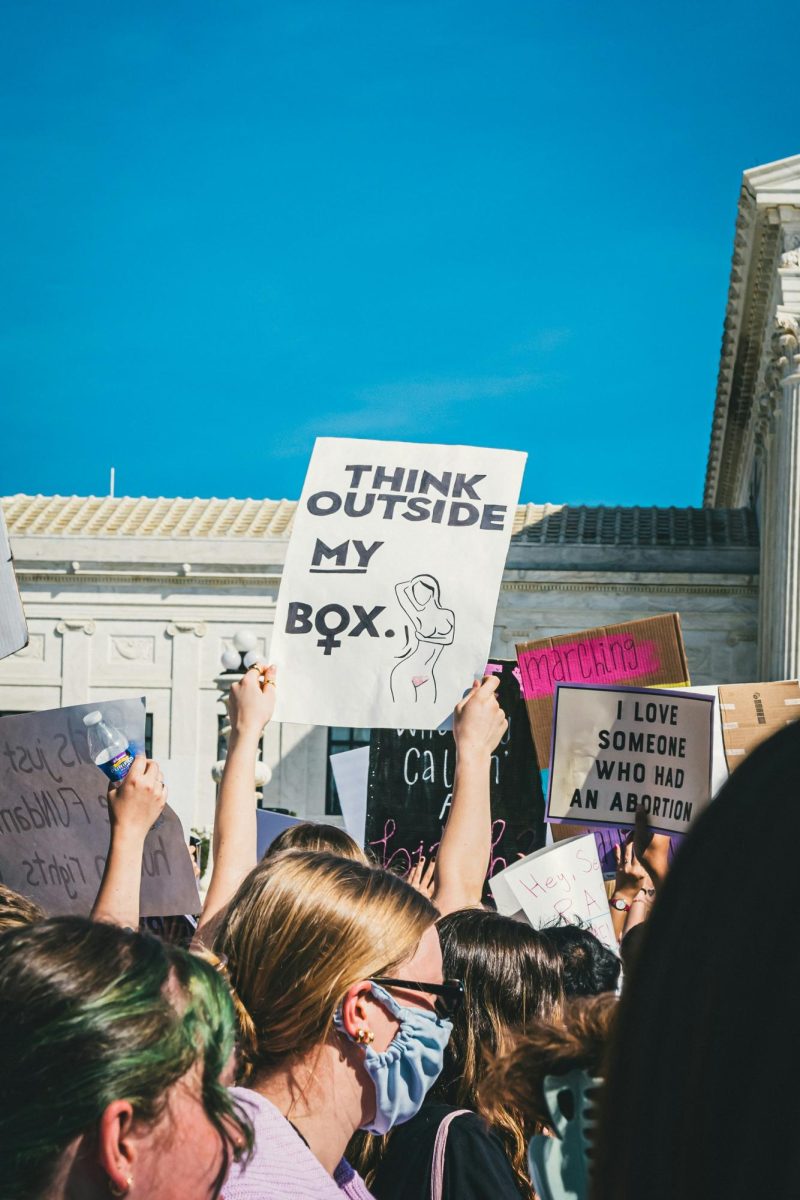Donald Trump’s re-election as president has helped contribute to the transition of the 4B movement from South Korea to the United States.
The 4B movement challenges traditional beliefs and sparks new conversations about gender roles, independence and our social structure.
The 4B movement started in South Korea in 2019, encouraging women to defy traditional expectations of marriage, dating and childbearing.
The movement’s four principles, all of which start with the Korean letter “B,” are 비혼 (Bihon), rejecting marriage; 비출산 (Bichulsan), rejecting childbirth; 비연애 (Biyeonae), rejecting romantic relationships with men and 비성형 (Biseonghyeong), rejecting cosmetic surgery and beauty standards.
Trump’s re-election resulting in political and legislative changes, especially since Trump gave the rights of women’s reproductive rights to the states, has highlighted the need for women to regain their independence and reassess their roles in society.
According to a CNN article, young liberal women across TikTok and Instagram are discussing and sharing information about the 4B movement.
“These women say they are enraged and fed up after a majority of their male counterparts voted for a candidate who was found liable for sexual abuse and whose appointment of three conservative Supreme Court justices led to the overturning of national abortion rights protections.”
Women responded by saying they were swearing off men and urging others around the country to join the movement.
I believe that the development of the 4B movement in the United States, especially since Trump is serving his second term as president, may serve as a “wake-up call” for Americans. This could help them reevaluate engrained social norms around gender roles, family expectations and personal freedom.
Tanvir Bhamra, author of 4B Movement: Saying No To Men, stresses how such societal expectations may limit women’s freedom and restrict their life choices by questioning established roles for women.
Refusing these roles, according to 4B supporters, emphasizes how deeply ingrained patriarchal norms may limit women, particularly in conservative or economically challenging environments.
Beyond empowering women, I believe that the movement could lead to significant legislative and societal changes that address the systemic injustices ingrained in our social and economic structures.
However, according to USA Today, experts in relationships and mental health are skeptical about the 4B movement in reaction to Trump’s win.
They believe choosing to avoid dating and relationships, in general, is largely misguided, even though every American has the right to peacefully protest the election however they want.
A dating coach, Amy Chan, says that one benefit of the 4B movement is that it may inspire women to prioritize their own personal development and choose a partner who shares their beliefs.
Besides that, Chan believes encouraging people to swear off relationships as a form of political protest is likely counter-productive.
“I don’t think it’s a good idea to cut yourself off from romantic relationships or intimacy as a way to punish men or the administration — it ultimately ends up being self-punishing,” she says. “It also fuels the rhetoric that just because some men are harmful or anti-feminist, all men must be. We won’t create a better world by seeing men as evil or as the enemy.”
While experts like Amy Chan argue that the 4B movement may be self-punishing, I believe it’s important to understand that the movement is about confronting a system that disproportionately affects women, not about women isolating themselves.
Opting out is an act of rebellion against long-standing social norms. It is not a rejection of men but rather a demand for a society that respects and encourages women’s independence.
The movement is for empowering women to take charge of their own lives in a society where they are frequently the only ones responsible for family life, gender norms and economic pressures.
It’s not about rejecting all men but rejecting a system that forces women into limited roles.
In addition to questioning social and economic limitations, this movement emphasizes the strength of group effort and its capacity to motivate legislative changes.
Women who reject traditional roles are not just opposing social norms, they are promoting a future in which each person’s life decisions are decided by themself.
The 4b movement goes beyond women’s rights as it promotes a more equal and inclusive society that acknowledges the importance of structural reform to guarantee that everyone, regardless of gender, has access to freedom and choice.







